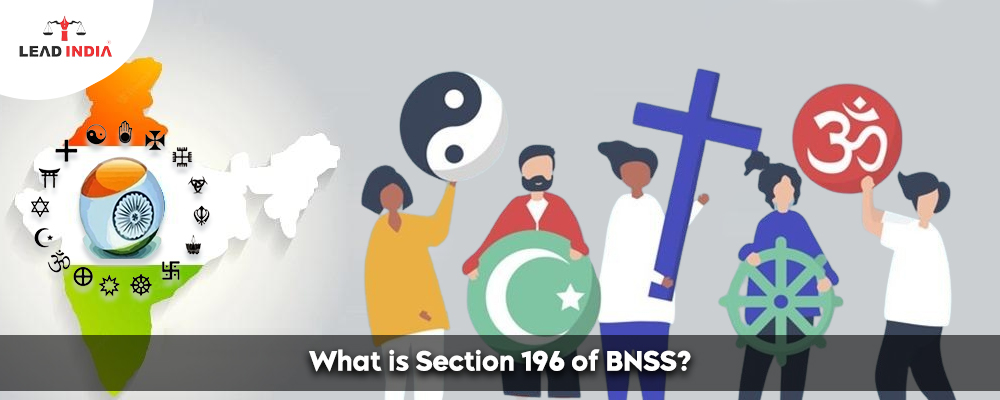The BNSS Section 196 provides for Inquiry by the Magistrate into the cause of death. It empowers the magistrate to conduct an inquiry in certain cases of death in addition to the investigation conducted by police officers. It is done to avoid any discrepancy and the chance of mistakes in such cases. The additional inquiry conducted by the magistrate acts as a double check upon the investigation.
Need A Legal Advice
The internet is not a lawyer and neither are you. Talk to a real lawyer about your legal issue

Section 196 of BNSS
- Section 196(1) states that when the offense is of a nature specified in clause 3 of this section, the nearest magistrate who is empowered to hold an inquest may, in addition to or instead of an investigation conducted by a police officer, the magistrate may hold an inquiry into the offense. In all the other cases that are mention in Section 194(1), any magistrate who is empower to hold an inquiry can conduct the inquest into the cause of the offense.
- Section 196(2) states that the magistrate shall conduct the inquiry in addition to the investigation in such cases where the person is in the custody of police or in any other custody and, while being in custody, he dies or disappears, or it is alleged that rape has been commit on any woman under custody. The magistrate within whose local jurisdiction the offense has been commit will conduct the inquiry.
- Section 196(3) states that the magistrate who is making the inquiry should record the evidence taken by him during such an inquiry.
- Section 196(4) states that if the magistrate thinks that it is important to discover the cause of his death to examine any dead body, that has already been intern, then in such a case the magistrate may cause the body to be disinter and examine.
- Section 196(5) states that when the magistrate is conducting the inquiry, he shall inform the relatives of the deceased about the same and will also allow them to be present during the inquiry.
- Section 196(6) states that any magistrate, executive magistrate, or police officer who is conducting the inquiry or investigation should send the body to the civil surgeon or other qualified medical person within 24 hours of the death of the person so that the body can be examine. If it is not possible to send the body, then they have to record the reasons for it.
- The above section states that relative means parents, children, brothers, sisters, and spouses.
Impact of section 196 of BNSS
- This section increases the accountability of states in cases of custodial death and custodial rape. It is much needed so that law enforcement agencies cannot misuse their power. The person is expect to be safe under the custody of a police officer but if the crime is commit under their custody or by any one of them, then it will lead to an alarming situation
- The presence of a relative during the inquiry is a much-needed step. It will help in reducing the chances of abuse or negligence by the authorities. The rights of the dead person will also be protect in the event of an inquiry if a relative is present.
- This section has many challenges as well. The accountability of the government is a good step, but the implementation of this section is a troublesome process. The timely completion of the inquiry is difficult. The availability of resources is also a constraint in implementation. The availability of resources throughout is a difficult thing.
This section provides for a proper framework to be follow in cases of custodial death or custodial rape. These types of offenses and the irresponsible behavior of law enforcement agencies should be check.
Free legal advice, online information, and other various forms of legal assistance are provided by Lead India. We provide you with a platform where you can talk to a lawyer and even ask a legal question. Our lawyers are always here to help you with any legal issues. We not only provide online legal support, but we also provide the facility of asking a free legal question.





 Talk to a Lawyer
Talk to a Lawyer